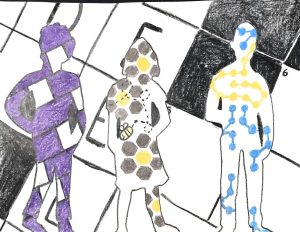“The Slow Rush” Goes By Slowly and Feels Rushed
New Tame Impala Record Does Not Live up to Its Predecessors
March 25, 2020
Rating: 3/5 Falcons
Following the unprecedented success of his third album, Currents, Kevin Parker’s Tame Impala faced an important and possibly career-defining challenge going into their fourth album. Currents introduced Tame Impala to a broad audience of pop listeners, and the album has arguably become an indie classic (I know some people will object to the use of the word indie to describe Currents). Going into The Slow Rush, Parker had to navigate two challenges: how to remain authentic and how to retain his newfound fans without alienating his base. Parker’s solution? Drums.
Percussion plays an important, necessary, and glorious role in most of the songs on The Slow Rush, like on the delightfully raucous “It Might Be Time.” Parker manages to make the drums clean and precise while also keeping their sound full and soulful. Many of the songs are also dominated by punchy piano melodies that feel organic and new compared to the synths that dominated Currents.
Thematically, the record is almost exclusively about time. Parker is now in his early thirties and is getting ready to settle down and get married. The album kicks off with the semi-spoken word track “One More Year,” a song about having just a year to party his heart out before letting all of it go. This song walks the perfect line between LA shallowness and existential dread.
Sometimes, Parker’s musings about running out of time in this paradisiacal life he has found for himself can come off as a little shallow, like on the track “Instant Destiny,” where Parker sings about his boundless possibilities over an endlessly repetitive melody. In “Tomorrow’s Dust,” despite having dynamic and interesting production, the lyrics are distractingly bad. The constant obsession with time can get tiresome and feels like a cop-out to avoid going deeper into why Parker feels his happiness is ending.
Although the album is full of solid, great tracks, the song “Posthumous Forgiveness” stands out as resoundingly different and showstopping. In an interview with Beats 1’s Zane Lowe, Parker revealed that it took him months to write the song. The time certainly paid off. In the song, Parker sings candidly about the death of his father, who was not present while he was growing up. The song is also very dynamic, shifting to a completely new melody in the middle of the song in a very Currents-esque way. The song is intricate in a way that many of the other tracks on the album are not, and also unlike them, it does not seem to be centered around the percussion. Most of the other songs on the album have similar instrumentation, and it makes the album a much less exciting listen than previous Tame Impala albums. The song begs the question of how the album could have turned out differently if Parker had spent a little more time on it.
Parker seems to have conflated making songs long with making them interesting and worthwhile. Songs like the fun and sassy “Breathe Deeper” are quite enjoyable at first but run unnecessarily long without a clear purpose or substantial change in direction. The song “Is It True” starts off with one of the album’s most exciting grooves but fizzles out with a bizarre, toned-down instrumental break at the end.
Overall, Parker’s production seems careful and intentional, but the largest flaw with The Slow Rush is its cohesiveness. The album is too monotonous when it comes to both production and subject matter. Parker’s vulnerability on the album loses its potency as the songs repeat similar observations. The album’s highlights seem to exist in spite of—and not because of—the general lack of versatility.











